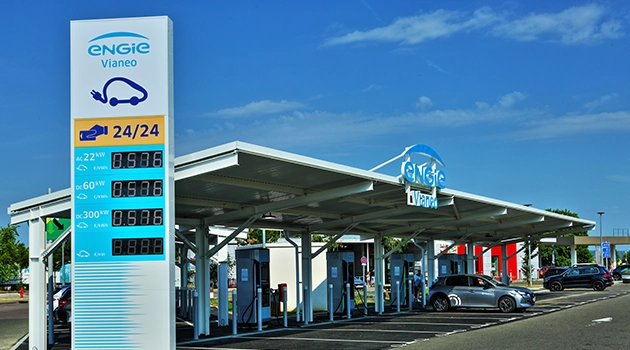Global warming is accelerating and yet the transport sector alone accounts for 31% of greenhouse gas emissions in France! It’s also a major cause of pollution. Electric cars therefore play a key role in decarbonizing car travel, improving air quality and achieving the French national target of net zero emissions by 2050.
Summary:
Lower emissions, less pollution
Quiet and convenient
Lower emissions, less pollution
Your electric car helps improve air quality. Today, air pollution caused by fine particles emitted by vehicles with internal combustion engines is the second most common cause of avoidable death in France. It causes almost 48,000 premature deaths every year. Although pollution is worse in large urban areas, it also affects smaller towns and rural areas.
An electric car produces low greenhouse gas and air pollutant emissions: less than or equal to 60 grams of CO2 per kilometer . An electric car emits very few harmful pollutants – this is good for the planet and for human health.
Going electric also helps reduce industrial waste. Electric cars have fewer parts to replace than petrol and diesel vehicles; what’s more, there’s no oil to change and recycle. 80% of the components of lithium-ion batteries can be recycled. Initiatives to give them a new lease of life are currently in development. Plenty of positives for the environment!
Quiet and convenient
Your electric car reduces noise pollution. 12% of people in France are affected by high levels of noise pollution caused by road traffic. Noise pollution has a wide-ranging and negative impact on our health: stress, irritability, fatigue, general exhaustion, tinnitus and even depression and cardiovascular diseases. Electric vehicles are a game-changer. Significantly quieter than cars with internal combustion engines, they reduce noise pollution, particularly in cities, and improve our quality of life.
In October 2020, the French government introduced new policies to make it easier to buy and use electric vehicles: a subsidy known as the “environmental bonus”, financial assistance known as the “conversion bonus” and more support for charging stations. These subsidies and tax credits make electric cars more affordable.
The significant expansion of the charging network in France also makes it easier to switch to electric vehicles. The number of charging points increased from 24,808 in 2018 to 82,107 in 2022, reaching over 100,000 in 2023. Indeed, the European Union has recently adopted a text which provides for the installation of a charging point every 60 to 100 km by 2030.
Q&A
Studies have shown that the carbon impact of an electric car in France is 2 to 3 times lower than its petrol or diesel equivalent. Although its manufacture generates greenhouse gases, driving an electric car offsets them after around 70,000 km.
80% of the components of lithium-ion batteries can be recycled. Metals including cobalt, lithium, aluminum and copper are recovered. New batteries will soon be made with recycled materials .
To prevent accidents, electric vehicles sold in Europe since the end of 2019 produce sounds of at least 56 decibels whenever traveling below 20 km/h.
In addition to ENGIE Vianeo, several applications – Chargemap, ABRP, Waze, Plugshare, Nextcharge – provide instant access to nearly 300,000 charging points across Europe.
[1] Santé publique France, 2016
[2] Légifrance, 2017
[3] Statista, 2023

